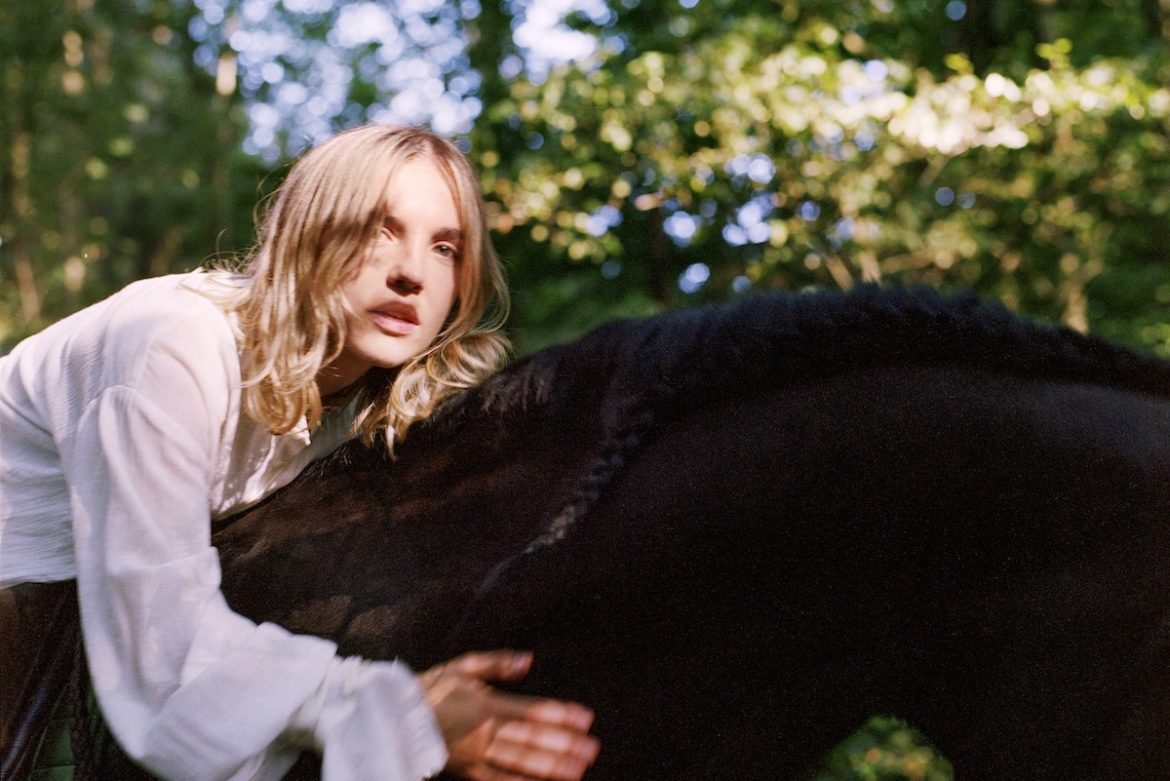The Japanese House brings dream pop back down to earth with new single “Boyhood,” a reflection of times lost and a prayer for those to come.
 follow our Today’s Song(s) playlist
follow our Today’s Song(s) playlist 
Stream: “Boyhood” – The Japanese House
(adsbygoogle = window.adsbygoogle || []).push({});
It’s hard to believe that 2019’s release Good at Falling was The Japanese House’s debut. The maturity of the album was rare for a new artist. The face behind the moniker is Amber Bain, a British singer/songwriter who masters telltale lyricism and pristine production in one go. Androgyny, intimacy, and honesty are at the heart of Bain’s artistry. She returns after 2020’s EP Chewing Cotton Wool with new single “Boyhood” (out March 20 via Dirty Hit), which stays true to her captivating spirit.

I could have been somebody else but
I’ve been out looking for me
It doesn’t matter what I tell myself
For a moment there I swear I saw me
I went to meet to somebody new
Changed beneath the evening light
And she held me kind of like you do
I hope you know
Each Bain track is an emotional loose cannon – every inch of love, fear, and grief is fair game. “Boyhood” takes off at a run. Syncopated synth and airbrushed drums, providing a soft landing for the melody that follows at their heels. Bain insists, “It doesn’t matter what I tell myself, for a moment there I swear I saw me.” This self-awareness is part of The Japanese House’s charm, a cut and dry tough love.
I could have been somebody who
You wanted to have around to hold
I should have jumped when you told me to
I wanna change but it’s nothing new
And if I grow I’m gonna get so old
Will you hold me like you always do?
Bain describes the inspiration for the track, detailing “When my best friend Katie and I were young and in love, we fantasized about riding off into the distance on her horse Bam Bam, away from all the problems that came from being gay and in love back then.”
“This song talks about how sometimes, however hard you try, you can’t help but be a product of the things that happened to you or held you back earlier on in life. But also, and more importantly, it’s about hope for overcoming those things.”

(adsbygoogle = window.adsbygoogle || []).push({});
Though rooted in memories, “Boyhood” explores a different reality: A coalescence of what-if’s and regrets.
This is the foundation on which Bain builds, “I should have jumped when you told me to; I wanna change but it’s nothing new.” The melody is simple, soft, constant, like seeing your breath on a winter night.
I used to be somebody else
And, I’m still out looking for me
I go out and try to chase myself
Find someone that might restore me
I could have been somebody new
And I’m talking to myself again
But I don’t know who I’m talking to
I think it’s you
Bain sums it up perfectly. “Look at us now: Not riding away, but towards… something. This horse was very lovely to us, but I think deep down Bam Bam was the horse we were riding all along, and wherever I’m recklessly galloping off to in my life, Katie will be riding bareback behind me like a lunatic, arms around me, like we’d always planned.”
“Boyhood” knows that each of us contains multitudes. Identity is found in stories of our lovers and friends, riding along us to the next big thing. Maybe healing is possible, and maybe its best done while crying and dancing at the same time.
I could have been somebody who
You wanted to have around to hold
I should have jumped when you told me to
I wanna change but it’s nothing new
And if I grow I’m gonna get so old
Will you hold me like you always do?
— —
:: stream/purchase “Boyhood” here ::
Stream: “Boyhood” – The Japanese House
(adsbygoogle = window.adsbygoogle || []).push({});
— — — —

Connect to The Japanese House on
Facebook, Twitter, Instagram
Discover new music on Atwood Magazine
© Max Barnett
(adsbygoogle = window.adsbygoogle || []).push({});
:: Today’s Song(s) ::
 follow our daily playlist on Spotify
follow our daily playlist on Spotify 
(adsbygoogle = window.adsbygoogle || []).push({});
:: Stream The Japanese House ::
(adsbygoogle = window.adsbygoogle || []).push({});
(adsbygoogle = window.adsbygoogle || []).push({});



 © Max Barnett
© Max Barnett





